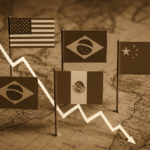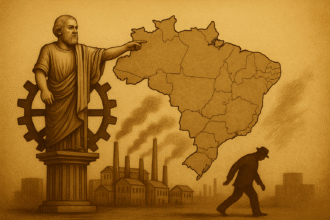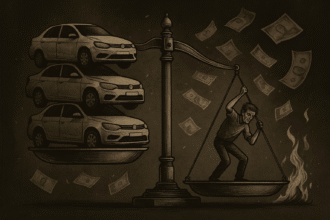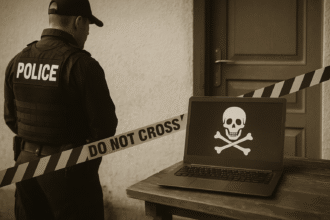This question appears every day in debates, headlines and impassioned speeches — but the answer is rarely honest. Brazil is called “neoliberal,” accused of living under a savage capitalism, as if the free market governed the national economy.
Nothing could be further from the truth.
What we have in Brazil is a system statist, interventionist and notary, where the State:
- defines who can produce (with licenses, agencies and authorizations);
- determines who can prosper (with taxes, tariffs and selective favors);
- chooses winners (via subsidies, exemptions and public contracts).
This is not capitalism.
That's it crony capitalism — when success depends more on proximity to power than on efficiency, innovation or merit.
While political discourse accuses the market of being savage, the Brazilian business environment is suffocated by a public machine that:
- rate up to the entrepreneur's breathing space;
- protects inefficient sectors with tariffs;
- discourages investment with legal and tax uncertainty.
“Real capitalism is when the State does not protect the market — it protects the right to participate in it.”
– Elian Verres
Small entrepreneurs struggle to issue invoices.
The informal worker is persecuted.
The middle class is crushed by a system that taxes consumption but rewards state waste.
So, no.
Brazil is not a capitalist country.
It's a country hostage of a State that fears economic freedom.
📣 Final call to the reader:
Do you want to know why the discourse of “social justice” serves to mask state control?
Keep following the Power & Market and get ready for the next series:
The New Era of Economic Regression: PT, Lula and Haddad against the Free Market.





